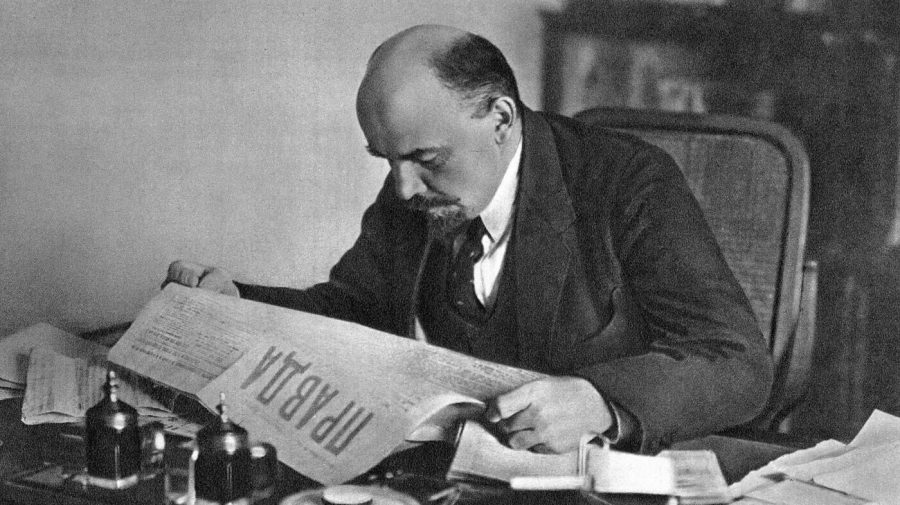
It turns out that Vladimir Lenin and REM were right. Francis Fukuyama was wrong.
In 1921, during the Soviet Union’s New Economic Policy period, Lenin is supposed to have exclaimed that “The capitalists will sell us the rope with which to hang them.”
In 1987, REM sang, “It’s the end of the world as we know it.”
And, in the aftermath of the collapse of the Soviet Union, in 1989, Fukuyama wrote a seminal essay titled “The End of History?”
Barely a month in office, President Trump has dismembered many fundamental precepts of American democracy — including the core principle of three coequal branches of government. Ruling by executive order, the president has sought to eliminate myriad government agencies; bring all agencies under the purview of the White House, including those that are, by law, supposed to be nominally independent; and has engaged in abrupt, willy-nilly firing of tens of thousands of federal employees, creating havoc for countless families.
Trump has been abetted by a spineless Republican-controlled Congress that refuses to stand up for itself as an institution, let alone stand up for the judiciary.
The massive spending cuts from gutting the government will not go to reduce the $36 trillion national debt, but rather to “pay for” massive tax cuts to benefit Trump, Elon Musk and the new American oligarchy. The average citizen will see little benefit — and any benefit will be offset by a decline in government services and increased prices.
Lenin was right.
On the international side, the fundamental tenets of America’s bipartisan foreign policy dating back to the end of World War II have been turned upside down by Trump and his collaborators. NATO is now the enemy and Russia is our friend.
In classic Orwellian “newspeak,” Trump has declared Ukraine to be the aggressor against Russia and Ukrainian President Volodymyr Zelensky a dictator. Last week, the front page of the British tabloid the Daily Star had a huge photo of a poodle with Trump’s face and the caption “Putin’s Poodle.”
At the recent Munich Security Conference, Vice President JD Vance and Defense Secretary Pete Hegseth did not seek common cause with Europe but actively supported Putin on Ukraine and, in Vance’s case, met with leaders of AfD, Germany’s far-right party. Musk, for his part, has been shilling for the AfD on his social media site X for months. AfD, spiritual heirs to the Nazi Party, are now the second-largest party in the Bundestag after Sunday’s election — though they are unlikely to become part of a ruling collation, as German elites understand the danger. In addition to the party’s ties to Putin, AfD leaders have denied the severity and import of the Holocaust.
Isolationist proclivities initially kept America out of the two world wars, but there was never a question about which side the U.S. would be on. Today, one must seriously ask the question, “If Trump was president during World War II, would the U.S. have supported the Allies and gone to war against Germany? Or would Trump have supported the Nazis?”
The party of Reagan has been so cowed by Trump that Republican hawks on Russia and Ukraine, such as Sen. Lindsey Graham (R-S.C.) and Senate Majority Leader John Thune (R-S.D.), are now missing in action. Recently, Senate Republicans voted to confirm former Rep. Tulsi Gabbard as director of national intelligence. Gabbard has long beat the drum for Putin and Russia. The intelligence community has now joined the ever-growing list of U.S. institutions being dissembled by Trump. The late Sen. John McCain (R-Ariz.) is turning in his grave, but Lenin was right again.
Which brings us to political scientist Francis Fukuyama, whose seminal work “The End of History?” portrayed the Cold War battle of ideas as being won by the West. Fukuyama’s premise was the great confrontational ideological battles over the best type of society were over. Now, the Trump administration has unabashedly taken up the bidding for Putin and Russia.
It turns out the Soviets — er, the Russians — won. The U.S. has become Russia, not the other way around. The U.S. lost the Cold War — not to communism, but to autocracy.
The REM song goes, “It’s the end of the world as we know it, and I feel fine.” I definitely don’t feel fine.
Jonathan D. Strum is an international lawyer and businessman based in Washington and the Middle East. From 1991 to 2005, he was an adjunct professor of Israeli law at Georgetown University Law Center. From 2015 to 2020, he was general counsel to a graduate school focused on national security in Washington.












